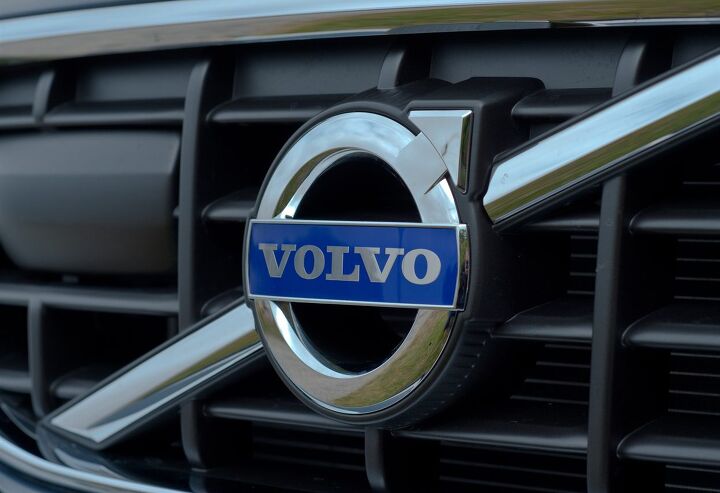Report: Volvo Dealers Respond Negatively to Digital Retail Strategy

Last week, we discussed Volvo Cars’ plan to transition to an online sales model as a larger quotient of its product becomes electrically driven. As luck would have it, the concept hasn’t been a runaway success with auto retailers. Vehicles becoming increasingly digitized, combined with the unparalleled consumer access offered by the internet, has made numerous manufacturers wonder why the dealership role couldn’t be diminished. After all, Tesla has done alright without a traditional sales network.
But Tesla didn’t have a gross of existing showrooms ready to make a fuss. Volvo has nearly 300 and dealerships are reportedly voicing their concerns as the manufacturer does what it can to assuage fears about the possibility of their being put out of businesses in the coming years.
This time around, the stakes seem a little higher. Volvo shops are not complaining about losing relevance in 2030 — the final year of the company’s planned conversion to an all-electric brand. They’re contemplating a world where they’ve been scaled down into little more than delivery hubs for customers that did their dealings with the factory online.
“Dealers always want to control the consumer experience from start to finish,” said Volvo Retail Advisory Board Chairman Ernie Norcross explained in an interview with Automotive News. “If we don’t control the buying experience, how are we anything but a delivery and service center?”
Norcross, who also owns a showroom in Memphis, TN, added that franchisees have come to him in a state of dismay over what the future holds for their business. It’s becoming a familiar tune as increasingly more automakers toy with the idea of pushing online sales, often starting with EVs. There’s a clear worry among dealerships that they’re gradually being forced out of the industry while manufacturers move in on their territory.
“Will the margin compensation for [battery electric vehicles sold online] be the same?” Norcross mused. “We are currently having that conversation.”
Volvo CEO Håkan Samuelsson has already signaled that it’s to be full steam ahead, however. Going electric and swapping to digital sales are now essential aspects of the brand’s long-term strategy.
“I am totally convinced there will be no customers who really want to stay with a petrol engine,” he explained to the press last week. “We are convinced that an electric car is more attractive for customers.”
Though he suggested that dealers will still play an important role in informing customers about the car, even if they won’t need to know as much about financing or how to write up a lease agreement (as that will be done by the factory via the internet). Meanwhile, Volvo Cars USA CEO Anders Gustafsson has been trying to convince salespeople that their jobs will remain intact as he frames everything as an exploratory initiative to test the viability of the online retail program.
“We have been very clear with that,” he said. “We will, of course, push things a little bit and see if we can develop this industry, especially related to digitalization.”
Ultimately, we’re inclined to buy into the premise that this is a trial run to see if the digital model works. But a successful test would seem to indicate a sort of lingering death for the traditional dealership. At the very least, staffing requirements will be scaled back immensely as more people do their business over the internet. The logical conclusion to this program brings us back to those concerns shared with Mr. Norcross, where dealerships just end up as corporately sanctioned service centers.
[Image: Volvo Cars]

A staunch consumer advocate tracking industry trends and regulation. Before joining TTAC, Matt spent a decade working for marketing and research firms based in NYC. Clients included several of the world’s largest automakers, global tire brands, and aftermarket part suppliers. Dissatisfied with the corporate world and resentful of having to wear suits everyday, he pivoted to writing about cars. Since then, that man has become an ardent supporter of the right-to-repair movement, been interviewed on the auto industry by national radio broadcasts, driven more rental cars than anyone ever should, participated in amateur rallying events, and received the requisite minimum training as sanctioned by the SCCA. Handy with a wrench, Matt grew up surrounded by Detroit auto workers and managed to get a pizza delivery job before he was legally eligible. He later found himself driving box trucks through Manhattan, guaranteeing future sympathy for actual truckers. He continues to conduct research pertaining to the automotive sector as an independent contractor and has since moved back to his native Michigan, closer to where the cars are born. A contrarian, Matt claims to prefer understeer — stating that front and all-wheel drive vehicles cater best to his driving style.
More by Matt Posky
Latest Car Reviews
Read moreLatest Product Reviews
Read moreRecent Comments
- Haran Spot-on review of the Mercedes-AMG GT’s price adjustments and new features! For those intrigued by the all-wheel drive and enhanced features of the latest model, you can delve deeper with the complete operator's manual available here: https://chatwithmanuals.com/automobiles/mercedes-amg-gt-operators-manual-edition-c2020/. It’s a fantastic resource for understanding all the specs and new additions without getting bogged down by the complexity typically associated with car manuals. Chat with the manual using AI to quickly find exactly what you need to know about this sporty beast. Perfect for those who appreciate detailed insights on their luxury investments!
- Flashindapan Beautiful color combinations. I assumed they stop selling the TT here at least five or six years ago.
- Carson D Just don't be the whistleblower who reports on the falsification of safety data. That's a deadly profession.
- Carson D I'd have responded sooner, but my computer locked up and I had to reboot it.
- Todd In Canada Mazda has a 3 year bumper to bumper & 5 year unlimited mileage drivetrain warranty. Mazdas are a DIY dream of high school auto mechanics 101 easy to work on reliable simplicity. IMO the Mazda is way better looking.


































Comments
Join the conversation
One strange thing I learnt about the pandemic... people are nostalgic for 2003-2004 and want society's values from then to return, and, yes, this includes car dealers. Yes, really... people seem to think those were better days, socially, if not technologically. Apparently people were more satisfied with car dealers back then.
In other news, asteroids polled poorly with dinosaurs.